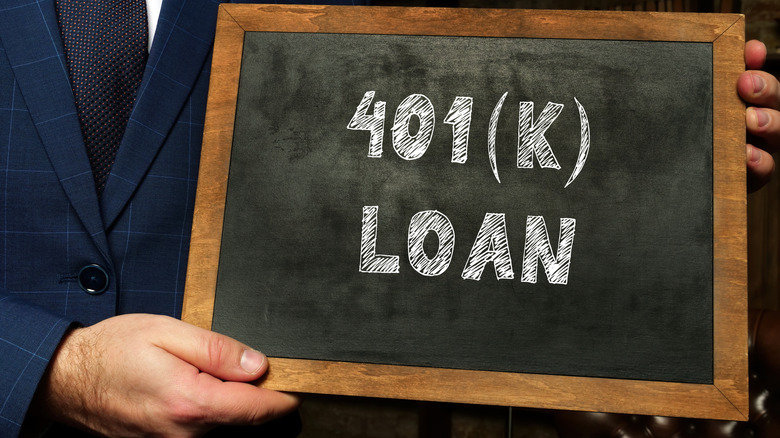Your IRS Audit Risk Increases If You Make This 401k Mistake
The 401(k) is a powerful tool that savers have at their disposal when planning for future spending needs. It's a retirement-specific account that allows investors to pour in pre-tax dollars (meaning you'll enjoy expanded buying power upfront when selecting investment products), however, taxes will need to be paid on distributions later on. Even so, 401(k) accounts benefit from an extra quirk that makes them incredibly useful: Many Americans can take advantage of contribution matches from their employer. This is offered by roughly half of all employers and the caps imposed by the IRS are exceedingly generous (rising from $23,500 for your individual limit, to $70,000 in combined total).
Because this account delivers so much value to savers hoping to expand their retirement finances, roughly 70 million Americans actively use 401(k) plans. While putting money into your 401(k) isn't going to raise any red flags at the IRS, tapping into these reserves before you turn 59 ½ can, and does, comes with consequences. Taking early distributions will not only cost you more, but can also bring additional scrutiny to your tax filing, due in large part to the high percentage of taxpayers that make mistakes on their filings when it comes to reporting payouts.
Early distributions generally incur a 10% penalty, but exemptions can apply
For most, a 401(k) and/or any other retirement savings account is exactly that: Purpose-built for retirement and therefore off-limits to any other financial need. But early distributions are possible, and this is where your audit risk comes into play. Retirees withdrawing from their accounts are following 'normal' protocol, and so the IRS isn't concerned with this usage pattern. However, early distributions are governed by a different set of rules. For most early withdrawals, you'll pay a 10% penalty rate on top of the capital gains tax assessed on the transaction. But (and it's a big one), there are certain cases that are exempt from this penalty rate. Namely, when withdrawing from a 401(k), exceptions apply for distributions under key umbrellas. These include up to $5,000 for adoption expenses and births, up to $22,000 for disaster recovery needs, and up to $1,000 for personal or family emergency expenses each calendar year, among numerous others.
Because there are a few different ways to shed this additional tax burden, millions of Americans take distributions early and apply these exemptions when filing taxes. Per Kiplinger, in 2021, almost 3 million people took early distributions to the tune of nearly $13 billion without paying the added 10% penalty rate. With so many potential claims on the table, the IRS is more likely to scrutinize taxes that are claiming one in order to made sure it's a legitimate use of the exemption.
Borrowing from your 401(k)
Contrary to what you might initially think, taking an early distribution from your 401(k) or even borrowing from its reserve is possible, and fairly simple. You can borrow an absolute maximum of $50,000, but withdrawals are capped at 50% of the value of your individual account. Most would consider it sacrilegious to take out funds early, but there are actually a few good reasons to break the rules take this path. You might find significant value in drawing down your account to eliminate high interest credit card debt, for example. This can offer a hard reset on your finances in the present. It might also offer an ideal solution when making a large, life-changing purchase such as investing in your first home. Since a significant portion of the value may have come from employer matches, you've potentially gained a fair amount of free, additional capital to work with. Planning your 401(k) savings with this sort of mid-stream usage in mind can move big ticket purchases within reach.
However, early access comes with some additional responsibility. Naturally, if you're taking a direct withdrawal you'll need to pay the 10% haircut or be prepared for additional scrutiny from the IRS. As a 401(k) loan, you'll generally have five years to repay the borrowed funds, and can't make additional, regular contributions until this repayment is complete — including interest. That means no employer matches, and if you don't hit your window you might end up on the hook for a 10% penalty anyway, as the remainder can be reclassified as a standard distribution.


